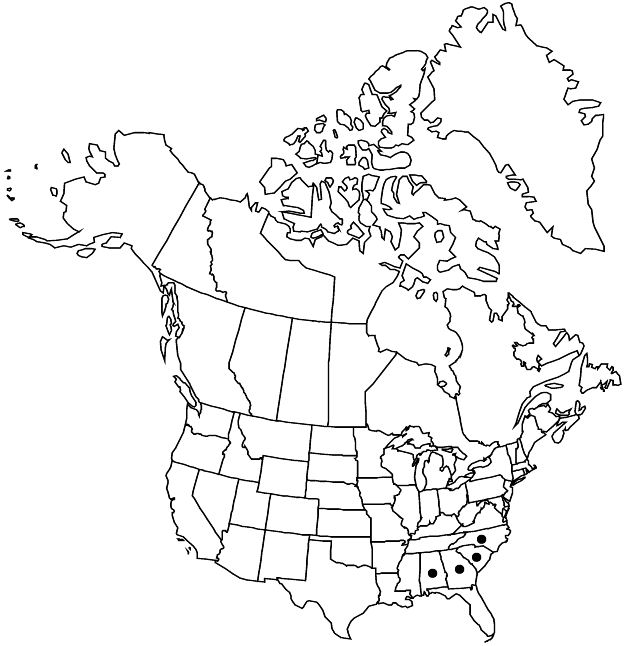Hypericum lloydii
Contr. Gray Herb. 189: 32. 1962.
Shrubs, decumbent, straggling and rooting, forming low, rounded clumps or mats, 1–5 dm. Stems: internodes (4-) or 6-lined at first, then terete. Leaf-blades linear-subulate, 13–25 × 0.5–0.8 mm, base articulated, parallel, margins revolute, apex rounded to retuse, midrib unbranched. Inflorescences narrowly pyramidal, 1–3-flowered, with 1–3 (–5) -flowered dichasia from to 5 proximal nodes, without additional flowering branches; pedicels 0.5 mm. Flowers 12–14 mm diam.; sepals deciduous, not enclosing capsule, 5, linear-subulate, unequal, (3–) 4.5–7 × 0.5–0.8 mm; petals 5, golden yellow, oblanceolate-oblong, 5–7.5 mm; stamens deciduous, 100; ovary 3-merous. Capsules ovoid, 3–4 × 2–2.5 mm. Seeds carinate, 0.7 mm; testa not seen.
Phenology: Flowering summer (Aug).
Habitat: Dry habitats (pine woods, granite outcrops, roadside embankments), inner coastal plain and foothills
Elevation: 100–300 m
Distribution

Ala., Ga., N.C., S.C.
Discussion
The habit, leaf shape, and drier habitats distinguish Hypericum lloydii from H. galioides.
Selected References
None.